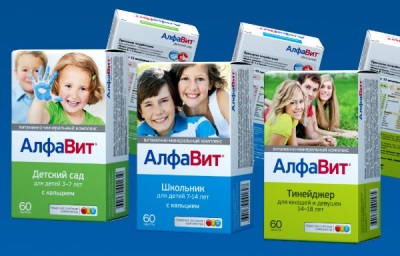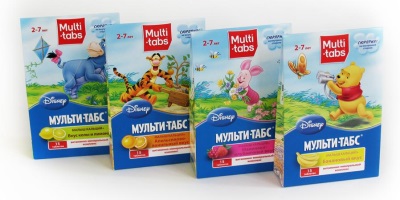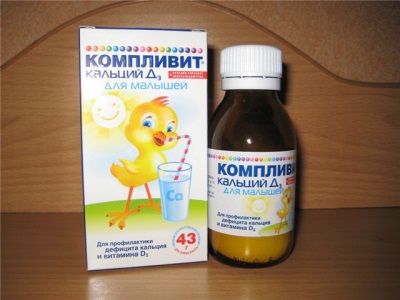Vitamins with calcium for children
The growing body of the child should receive a sufficient amount of a variety of nutrients. Calcium is considered to be one of the most valuable, therefore parents should know why a baby needs such a mineral, what foods should be in the children's diet to ensure its supply with food and in which vitamin preparations it contains.
Calcium value
Calcium is a mineral that is very important for children because:
- Without a sufficient amount of bone formation is disturbed.
- It is required for the growth of teeth and the formation of dentin and enamel.
- This mineral is important for muscle tissue and the nervous system.
- He noted anti-allergic and anti-inflammatory effect.
- Calcium is able to normalize the rhythm of the heartbeat.
- The presence of calcium in the children's diet contributes to active mental activity.
- This mineral strengthens the vascular walls.
- Calcium is involved in the immune system.
- Adequate calcium is important for good skin, hair and nails.
In the following video, it is just said how important calcium is for the child's body and what its lack may lead to.
Childhood Needs
Calcium in the following quantities should be ingested daily by the child:
|
Age |
How much calcium is needed in mg |
|
0-6 months |
300-400 |
|
6-12 months |
500-600 |
|
1-3 years |
700-800 |
|
4-13 years |
900-1100 |
|
14-18 years old |
1200 |
Calcium deficiency
If the child receives less calcium from food, this will manifest itself:
- Increased irritability.
- Weakness
- Tiredness
- Peeling and cracking of the skin.
- The appearance of "Zade".
- The destruction of the teeth with the formation of foci of caries.
- Increased bone fragility and deformation.
- The deterioration of the nails.
- Numbness of fingers
- Sleep disturbances.
- Lag in growth.
- Convulsive contractions of the muscles of the limbs.
- The appearance of rickets.
- Curvature of the spine.
With a serious lack of calcium in the child can disrupt the work of the heart, there are bleeding from the gums, vision problems and immune function.
Indications
To pay attention to the flow of calcium into the child’s body, choosing a suitable supplement with a doctor, is required in such situations:
- Insufficient calcium content in food, for example, with unbalanced diet.
- The period of intensive growth of children, in particular, during teething.
- Frequent fractures and diseases of the teeth.

Contraindications
Vitamin preparations with calcium are not prescribed for:
- Intolerance to their components.
- Severe kidney disease.
- Urolithiasis.
Calcium-containing foods
A child will receive sufficient doses of calcium from food if his menu includes:
- Milk and products from it.
- Sesame.
- Hard or processed cheese.
- Almonds, hazelnuts and other nuts.
- Legumes
- Bran.
- A fish.
- Eggs
- Seafood.
- Apples
- Meat.
- Cabbage, radish, cucumber, celery and other vegetables.
- Dried fruits.
- Cereals.
In the first 6 months of life, babies get calcium from breast milk, so a nursing mother should pay attention to the presence of calcium sources in the diet.If the child is an artificial artist, he is selected a mixture that contains enough of all the minerals necessary for growth.
Vitamin supplements
Multivitamin preparations, among the components of which calcium is present, are quite numerous. But, before acquiring any of them and giving it to a child, it is important to remember that a doctor should prescribe any calcium supplements in childhood. At the same time, the pediatrician will recommend how to change the diet of the toddler and what physical activity he needs to provide.
Often, calcium supplements are recommended to be taken twice a year to prevent its intake with food. Usually, this mineral is combined with vitamin D, since in this combination both compounds are better absorbed. Also, in many preparations calcium is combined with magnesium and / or phosphorus. These minerals improve the absorption of each other and contribute to the preservation of calcium in the bone tissue.
It is important that a single dose of vitamins with calcium should be given to an adult by the child, controlling its intake. If the child accidentally drinks more than is allowed at his age, it can lead to allergic reactions, manifested by rashes and itching on the skin. So the storage of children's vitamins, including calcium, should be given increased attention. Especially since sweet syrup, cute animal lozenges or delicious chewable tablets like most babies.
Important information about the absorption of calcium by the body of the child can be heard in the program of Dr. Komarovsky.
The best drugs and their names
Additional intake of calcium in the body of children can be provided as a course of vitamin preparations, in which this mineral is represented by one of the main components, and by multivitamin complexes, in which calcium is only one of the many mineral compounds.
Most often for children choose the following sources of calcium:
- Multi-tabs Kid Calcium + - multivitamins intended for children from 2 to 7 years. The supplement is a chewable tablet, of which the child receives 13 vitamins (including D) and 7 minerals.
- Calcium D3 Complivite - an additive containing calcium carbonate, supplemented with vitamin D3 in a dose of 200 IU. The drug is represented by orange chewable tablets and is recommended for children over 3 years old.
- Calcium + - chewable multivitamins in the form of cubs, recommended for children over three years old. The basis of this drug are tricalcium phosphate and vitamin D.
- Alphabet - Vitamin complexes, in which nutrients are separated and placed in different tablets or sachets, due to the characteristics of their absorption. In one of the sachets, Our baby for children 1.5-3 years old, calcium is combined with folic acid, vitamins D3 and B12, as well as pantothenic acid. In yellow tablets Kindergarten (for kids 3-7 years old) and white tablets Schoolboy (for children 7-14 years old) and Teenager (for 14-18 year olds) vitamins H and K1 and chromium are added to these compounds.

- Calcemin - tableted drug approved for use in children over 5 years old. Calcium in such an additive is represented by carbonate and citrate, as well as supplemented with vitamin D, copper, zinc, boron and manganese.
Also, in order to prevent a lack of calcium, you can give children such multivitamin supplements as Vitrum Junior, Pikovit Junik, Multi-tabs Teenager, Pikovit Plus, Kinder Biovital and others.
Calcium content in the most popular vitamins:
|
Drug name |
How much calcium is in the daily dose |
|
Multi-tabs Kid Calcium + |
200 mg in 1 tablet |
|
Multi-tabs Teen |
200 mg in 1 tablet |
|
Calcium D3 Complivite |
500 mg in 1 tablet |
|
Calcemin |
250 mg in 1 tablet |
|
Calcium + |
200 mg in 2 lozenges |
|
Vitrum Junior |
160 mg in 1 tablet |
|
Pikovit Yunik |
124 mg in 2 chewable tablets |
|
Pikovit Plus |
120 mg in 1 tablet |
|
Alphabet Our baby |
80 mg in sachet |
|
Alphabet Kindergarten |
135 mg in 1 tablet |
|
Alphabet Schoolboy |
165 mg in 1 tablet |
|
Alphabet Teen |
180 mg in 1 tablet |
You will learn even more information about calcium by looking at Dr. Komarovsky’s program.


















